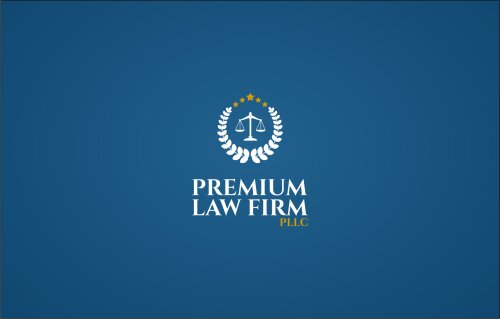Best Accounting & Auditing Lawyers in Missouri
Share your needs with us, get contacted by law firms.
Free. Takes 2 min.
Or refine your search by selecting a city:
List of the best lawyers in Missouri, United States
About Accounting & Auditing Law in Missouri, United States
Accounting and auditing law in Missouri is a specialized area that regulates the preparation, review, and maintenance of financial records. These laws ensure that businesses and individuals report their financial information accurately and comply with both state and federal tax standards. In Missouri, accounting and auditing practices are governed not only by state statutes but also by professional standards set forth by bodies such as the Missouri State Board of Accountancy and the American Institute of Certified Public Accountants (AICPA). Legal regulations oversee accountants’ licensing, conduct, independence, and ethical obligations. Whether you operate a small business, manage a corporation, or handle personal finances, understanding the state’s accounting and auditing requirements is crucial for compliance and preventing disputes.
Why You May Need a Lawyer
Legal issues related to accounting and auditing can arise for both individuals and businesses. Common situations where legal help may be needed include:
- Facing an audit from the Internal Revenue Service (IRS) or Missouri Department of Revenue - Suspecting financial fraud or irregularities uncovered during internal or external audits - Disputes with accountants or auditors regarding professional conduct or alleged malpractice - Issues with financial statement preparation required for business transactions, such as mergers, acquisitions, or loan applications - Regulatory investigations concerning noncompliance with state or federal accounting standards - Planning for business succession, dissolution, or sales that require accurate and lawful accounting records - Navigating bankruptcy filings, which require precise accounting records
In these situations, a lawyer with experience in accounting and auditing law can clarify your rights and obligations, help prevent mistakes, and represent your interests in disputes.
Local Laws Overview
Missouri’s accounting and auditing laws are designed to protect the public and promote transparency in financial reporting. Here are some important aspects:
- The Missouri State Board of Accountancy licenses and regulates Certified Public Accountants (CPAs) and public accounting firms. - Missouri Revised Statutes Chapters 326 cover licensing requirements, continuing education, peer review, and professional standards for accountants. - State law adheres to standards set by the AICPA and the Governmental Accounting Standards Board (GASB) for governmental bodies. - Businesses in Missouri must follow state tax and reporting rules, including rules for recordkeeping, sales tax, payroll, and income tax filings. - There are specific guidelines regarding the retention and destruction of financial records, often requiring preservation for several years. - Any acts of fraud, embezzlement, or falsification of records are subject to civil and criminal penalties. - Auditors who review governmental agencies have separate standards and are often subject to additional oversight.
Violations of Missouri accounting and auditing laws can result in fines, license suspension, revocation, or criminal prosecution.
Frequently Asked Questions
What qualifications must an accountant have to practice in Missouri?
To practice as a Certified Public Accountant in Missouri, individuals must pass the CPA exam, meet specific education requirements, and complete professional experience. They must also be licensed by the Missouri State Board of Accountancy.
How often are business financial records required to be audited in Missouri?
Private businesses are generally not required to undergo regular audits unless required by creditors, investors, or as part of contractual obligations. Public companies and certain non-profits may be required to conduct audits by state or federal law.
What are the consequences of failing to comply with Missouri accounting laws?
Consequences can include fines, revocation of professional licenses, criminal charges, and civil liability for damages stemming from fraud or misrepresentation.
Who performs audits of government agencies in Missouri?
State and local government agencies are typically audited by the Missouri State Auditor’s Office or independent audit firms following government standards.
What should I do if I am being audited?
You should gather all relevant financial records, cooperate with the auditors, and consider consulting with a lawyer or a CPA to ensure you understand your obligations.
Can an accountant in Missouri be sued for malpractice?
Yes, accountants can be held liable for malpractice if they fail to adhere to professional standards and cause financial harm to their clients.
How long do I need to retain my tax records in Missouri?
It is generally recommended to keep tax records for at least seven years. Some records relating to property or long-term business assets may need to be kept longer.
Is there a state agency that handles complaints against CPAs in Missouri?
Yes, the Missouri State Board of Accountancy investigates complaints and takes disciplinary action against CPAs and public accounting firms for violations of ethical or professional standards.
Do non-profit organizations have special auditing requirements?
Some non-profits are subject to mandatory audits depending on their size, sources of funding, or if required by granting agencies or state law. Requirements can vary, so it is important to review the statutes or consult with a professional.
What is the role of an attorney in an accounting dispute?
An attorney can help interpret the law, review and negotiate settlements, represent you during audits or investigations, and defend you in court or before regulatory agencies.
Additional Resources
- Missouri State Board of Accountancy: Regulates the practice of public accounting and handles licensing and complaints for accountants. - Missouri State Auditor’s Office: Conducts audits of public agencies and provides guidelines for governmental auditing standards. - Internal Revenue Service (IRS): Supplies federal tax guidance and resources for individuals and businesses. - American Institute of Certified Public Accountants (AICPA): Offers guidance on national accounting and auditing standards. - Missouri Department of Revenue: Oversees state tax collection and compliance. - Local bar associations: Offer lawyer referral services that can help match you with professionals who have experience in accounting and auditing law.
Next Steps
If you believe you need legal advice or representation in an accounting or auditing matter in Missouri, consider these steps:
- Collect and organize all relevant financial records, contracts, and correspondence related to your matter. - Make a list of your concerns, questions, and objectives so you can clearly communicate with a legal professional. - Contact a qualified attorney with experience in accounting and auditing law, either through a local bar association or by searching for specialists online. - During your initial consultation, discuss your situation, ask about the attorney’s experience, and inquire about possible strategies, costs, and expected outcomes. - Follow your attorney’s advice for next steps, whether it involves responding to an audit, negotiating a dispute, or pursuing or defending a lawsuit.
Seeking prompt legal guidance can help you better understand your rights, limit your liability, and ensure that your accounting and auditing obligations in Missouri are properly met.
Lawzana helps you find the best lawyers and law firms in Missouri through a curated and pre-screened list of qualified legal professionals. Our platform offers rankings and detailed profiles of attorneys and law firms, allowing you to compare based on practice areas, including Accounting & Auditing, experience, and client feedback.
Each profile includes a description of the firm's areas of practice, client reviews, team members and partners, year of establishment, spoken languages, office locations, contact information, social media presence, and any published articles or resources. Most firms on our platform speak English and are experienced in both local and international legal matters.
Get a quote from top-rated law firms in Missouri, United States — quickly, securely, and without unnecessary hassle.
Disclaimer:
The information provided on this page is for general informational purposes only and does not constitute legal advice. While we strive to ensure the accuracy and relevance of the content, legal information may change over time, and interpretations of the law can vary. You should always consult with a qualified legal professional for advice specific to your situation.
We disclaim all liability for actions taken or not taken based on the content of this page. If you believe any information is incorrect or outdated, please contact us, and we will review and update it where appropriate.
Browse accounting & auditing law firms by city in Missouri
Refine your search by selecting a city.














